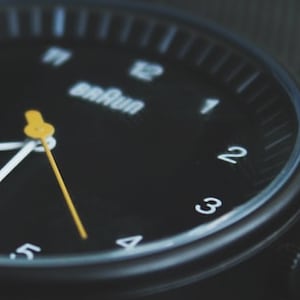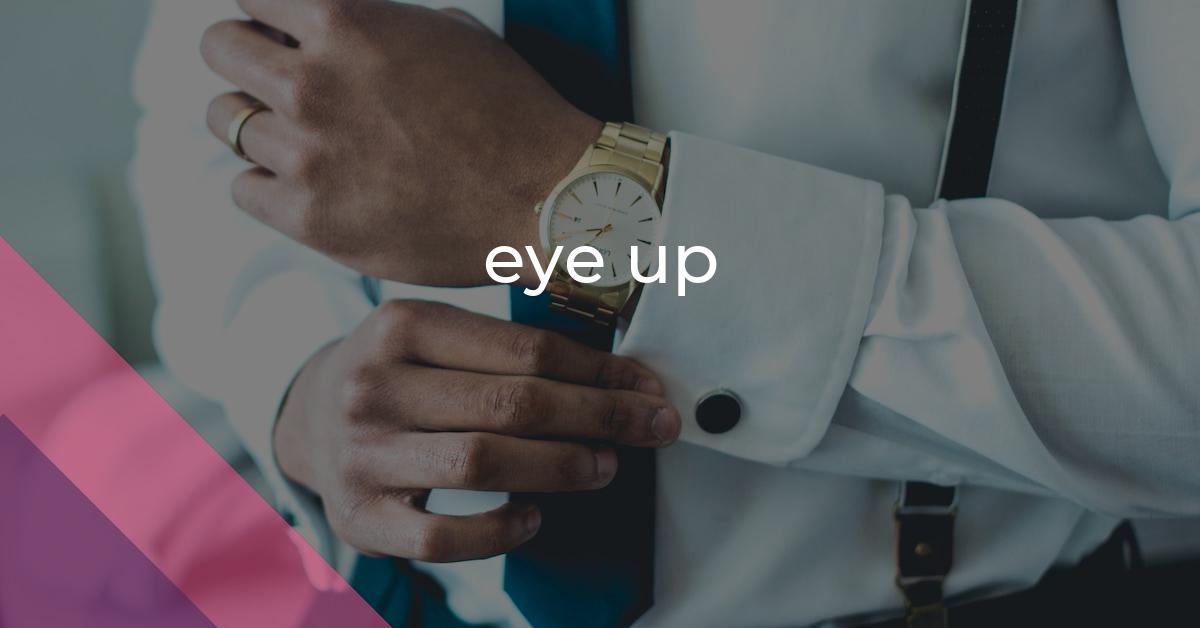eye up: Idiom Meaning and Origin
What does ‘eye up’ mean?
The idiom "eye up" means to look at or observe someone or something with interest or desire, typically in a romantic or sexual way.

Idiom Explorer
The idiom "set eyes on" means to see or look at something. It implies a strong desire or curiosity to see something or someone for the first time.
The idiom "eyes on the prize" means to keep one's focus and attention on achieving a goal or desired outcome in order to be successful.
The idiom "eye sex" refers to a non-verbal exchange of intense and suggestive looks between two people. It conveys a strong mutual attraction or flirtation, often described as a passionate gaze. This expression emphasizes the intensity of the visual connection rather than any physical or verbal interaction.
The idiom "eye-opener" means something that is surprising or enlightening, often leading to a change in perspective or understanding.
The idiom "eye of the beholder" means that beauty or value is subjective and can vary from person to person, as different people have different perspectives and opinions.
The idiom "easy on the eye" means visually attractive or pleasing to look at.
The idiom "do up" means to fasten or close something, such as a button or a zipper, typically when referring to clothing.
The idiom "dollar-sign eyes" refers to someone who is extremely greedy or obsessed with money, often to the point of disregarding ethical or moral considerations.
Inquisitive Gaze
The idiom *eye up* is a colloquial expression that originated in British English. It is primarily used in informal contexts and is often associated with casual conversation or slang. The phrase itself consists of two words, "eye" and "up," which can be interpreted literally as "to visually perceive" and "in an upward direction," respectively. However, the figurative meaning of this idiom goes beyond its literal interpretation.
In terms of its specific meaning, *eye up* typically refers to the act of assessing or appraising someone or something. It conveys the idea of visually examining a person or object without any explicit indication of intent or judgment. The idiom can be used to describe situations where one is observing someone or something attentively, perhaps with a degree of fascination or desire. It may also connote a more superficial assessment or visual appreciation.
While the etymology of *eye up* is not extensively documented, it is believed to have emerged in British slang around the late 19th or early 20th century. The idiom's usage has primarily been confined to British English and is less commonly employed in other variations of the language like American English.
Although *eye up* does not possess a complex or nuanced meaning, it has found its place in the lexicon of idiomatic expressions due to its versatility and relatability. The idiom can be applied in various situations, including social contexts, where individuals might use it to describe their observations of others. Alternatively, it can be employed in scenarios involving the evaluation of objects, such as the assessment of fashion or physical attractiveness.
Furthermore, *eye up* can also be used metaphorically in a wider range of contexts beyond visual perception. The idiom can connote a more general act of noticing or paying attention to someone or something, extending beyond the literal action of using one's eyes. This flexible usage allows for its incorporation in different conversational situations, making it adaptable to a variety of interactions and exchanges.
When we talk about idioms related to *eye up*, one commonly used phrase is "set eyes on." This phrase means to see or look at someone or something. It often implies a sense of excitement or anticipation, as if one has been longing to see or encounter the person or thing in question. For example, if you've always wanted to meet a famous celebrity and you finally get the chance, you could say, "I can't wait to set my eyes on them!"
Another related idiom is "eye sex," a more informal and humorous phrase. While it may sound suggestive, it simply refers to the act of exchanging intense or seductive looks with someone. It's like having a non-verbal conversation with your eyes, expressing desire or attraction. Although it's not a literal type of intercourse, it captures the intense connection that can be formed through eye contact.
A similar expression is "catch someone's eye," which means to attract someone's attention or be noticed by them. It suggests that something about you or what you're doing stands out in a positive or intriguing way. For example, if you're at a party and someone's gaze keeps returning to you, you could say, "I think I've caught their eye."
On a broader scale, "catch the eye" is another idiom related to *eye up*. It means to attract attention or stand out from the crowd. In this case, it can refer to anything that captures your visual interest, not necessarily a person. For example, a colorful display in a shop window might catch your eye as you pass by.
Lastly, we have the expression "clap eyes on," which is a more informal way of saying "to see" or "to set eyes on." It suggests a sudden or unexpected encounter with someone or something. For instance, if you unexpectedly run into a long-lost friend on the street, you can exclaim, "I just clapped eyes on them!"
*eye up* is a colloquial idiom that has made its mark in British English. Despite its relatively straightforward meaning, it captures the essence of visually appraising or evaluating someone or something, often implying curiosity or interest. While its etymology is not precisely documented, the idiom has become a part of informal conversations due to its versatility and relatability. Whether used literally or metaphorically, *eye up* offers a concise way to express the act of assessing or observing, leaving room for personal interpretation and contextual application.
Example usage
Examples of how the idiom *eye up* can be used in a sentence:
- She couldn't help but *eye up* the delicious pastries in the bakery window.
- When she walked into the room, he couldn't help but *eye up* her beautiful new dress.
- As a detective, it was his job to *eye up* every detail of the crime scene.
More "Colloquial" idioms



